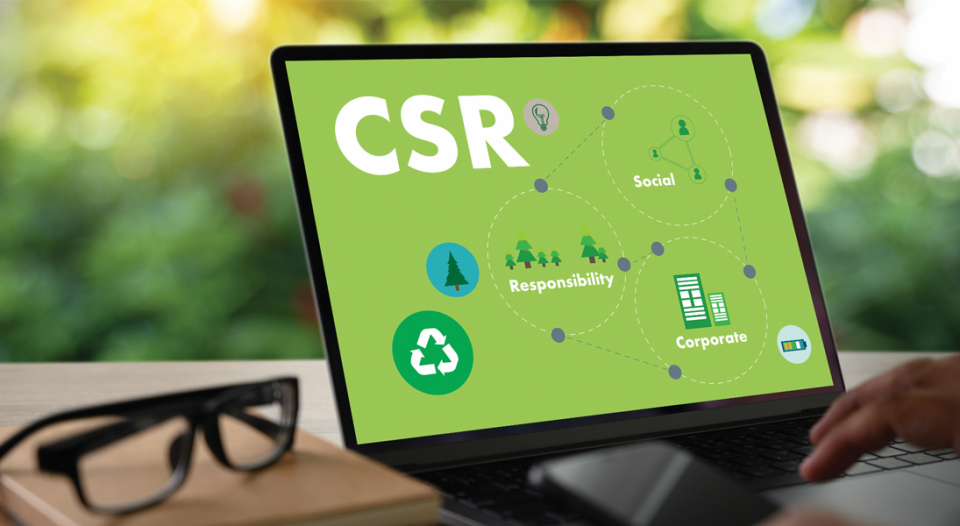When Martin Lucin counts his blessings, among them is the work ELCA Corporate Social Responsibility does to ensure that his pension monies are invested in ways consistent with the Lutheran teachings he has spent much of his life sharing.
“It goes to credibility and integrity,” said Lucin, 70, who retired at the end of June as pastor of Grace Lutheran Church in Spirit Lake, Iowa. “We are a people who stand up all the time and tell other people that you’re not supposed to just talk the talk but walk the walk, and this gives us an opportunity to do that.”
Thanks to the CSR program, Lucin was able to direct Portico Benefit Services, the ELCA’s benefits ministry, to grow his retirement account through investments deemed to be socially responsible.
The program’s mission is to persuade companies to improve from a standpoint of ESG—environmental, social and governance issues—and to provide information to anyone wishing to invest in businesses aligned with ELCA positions on such issues.
ELCA CSR works in concert with organizations such as the Interfaith Center on Corporate Responsibility and Portico, which provides retirement, health, life, disability and wellness benefits for ELCA rostered ministers and affiliated organizations.
“What I do in CSR is connect our social teachings to corporate behavior and shareholder relations,” said Kaari Reierson, the program’s director. “We have two main vehicles of documents for corporate social responsibility: issue papers and social criteria investment screens.”
As the name suggests, an issue paper addresses a topic—examples include climate change, extractive industries, human rights, health care and genetics. Individual investors and financial services firms such as Portico use issue papers to allocate capital in ways that align with ELCA philosophy and practice. An issue paper can also serve as the basis for a shareholder resolution, a request submitted to a company asking the business to address a subject of concern.
“Portico could, for example, go to an organization and ask for a specific kind of environmental audit, and if that didn’t happen, they could file a shareholder resolution,” Reierson said. “We have a good relationship with Portico.”
Erin Ripperger, manager of socially responsible investing and investor advocacy at Portico, stresses that the organization focuses its resolutions on those that have the potential to improve shareholder value. “It does happen where Portico has the opportunity to do something within a certain focus area, but the resolution that’s been written doesn’t have that increase in shareholder value written in,” she said. “Shareholders performing effective advocacy tie it to the bottom line—that’s how to get movement on things.”
“If you’re doing something that destroys the environment, then you’re not a good long-term investment. If you have governance problems, you’re also not a good long-term investment.”
As for the social criteria investment screens, they serve to filter out business activity that ELCA CSR believes to be in conflict with the denomination’s social teachings. Screens currently in place exclude or limit investment in companies that are involved in alcohol, tobacco, pornography, gambling, military weapons and privatized immigration detention, among other things.
Ripperger said her organization works with ELCA CSR to help program staff understand what is and isn’t screenable from Portico’s perspective. “They can write a screen however they would like, but we might have to let them know that we won’t be able to follow it exactly,” she said.
“Of course, these screens are not just written for Portico but anyone who would like to screen their investments in ELCA social teachings and policies. Portico’s job is to make sure that the social purpose funds we offer are within appropriate risk/return parameters given the companies that we screen out.”
When ELCA CSR creates a new screen or significantly modifies an existing one, it must win approval from Portico’s board of trustees to implement the screen in its portfolios, Ripperger added.
“Portico does currently implement all the ELCA CSR screens, though,” she said. “Even though we’re separate and have our own goals, we actually work very closely together. Our relationship is strong, and our relationship and communications back and forth are only getting stronger.”
History has proven, Reierson said, that ESG concerns play a role in profit and return on investment. “All these social issues, if companies ignore them, there will be blowback,” she added. “If you’re doing something that destroys the environment, then you’re not a good long-term investment. If you have governance problems, you’re also not a good long-term investment.”
Lucin recalls an early foray into investing when he followed the advice of an acquaintance about where to put money his grandmother had given him. “I listened to that person and felt OK about making money in the place he put it, until I found out that they were the No. 1 supplier of napalm during the Vietnam War,” he said.
“I appreciate what those people [at ELCA and Portico] do and how they are doing it. They give us an opportunity to live our faith in a responsible way, and I appreciate that.”





